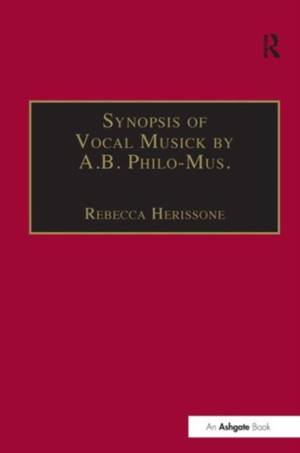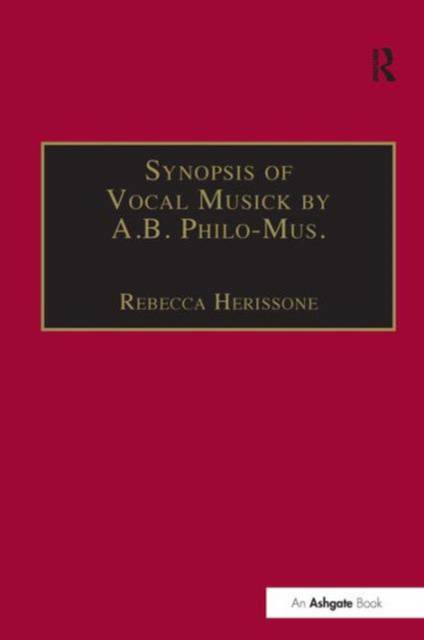
- Retrait gratuit dans votre magasin Club
- 7.000.000 titres dans notre catalogue
- Payer en toute sécurité
- Toujours un magasin près de chez vous
- Retrait gratuit dans votre magasin Club
- 7.000.0000 titres dans notre catalogue
- Payer en toute sécurité
- Toujours un magasin près de chez vous
Synopsis of Vocal Musick by A.B. Philo-Mus.
128,45 €
+ 256 points
Description
Synopsis of Vocal Musick, by the unidentified A.B., was published in London in 1680 and appears to have only ever had one edition. Its relatively short shelf-life belies its importance to the history of early British music theory. Unlike other English theoretical writings of the period, the Synopsis derives many of its aspects from the continental theoretical tradition, including the first references in English theory to the modern fractional time signatures that had been invented in Italy in the mid-seventeenth century, the first references in English to compound time and the first explanations of tempo terms such as Adagio and Presto. In these respects the treatise forms an important link between English and continental theoretical traditions and may have encouraged the adoption of Italian principles which became a common feature of English writings by the early eighteenth century. The treatise is essentially in two parts. The first section of the book comprises rudimentary instruction on understanding notation and intervals, descriptions of common vocal ornaments and instruction in the process of learning to sing. The second part consists of a selection of psalms, songs and catches which are provided as exercises for the singer, though several of them require a reasonably advanced degree of skill. These pieces provide valuable insight into the way both sacred and secular music might have been performed by amateur musicians in the Restoration period. They include 14 rare English madrigal settings by the Italian composer Gastoldi - further evidence of the Italian influence which pervades the text. This is the first modern edition of the Synopsis, and indeed the first edition to appear since its original publication.
Spécifications
Parties prenantes
- Editeur:
Contenu
- Nombre de pages :
- 240
- Langue:
- Anglais
- Collection :
Caractéristiques
- EAN:
- 9780754635055
- Date de parution :
- 18-03-16
- Format:
- Livre relié
- Format numérique:
- Genaaid
- Dimensions :
- 159 mm x 235 mm
- Poids :
- 453 g

Les avis
Nous publions uniquement les avis qui respectent les conditions requises. Consultez nos conditions pour les avis.





